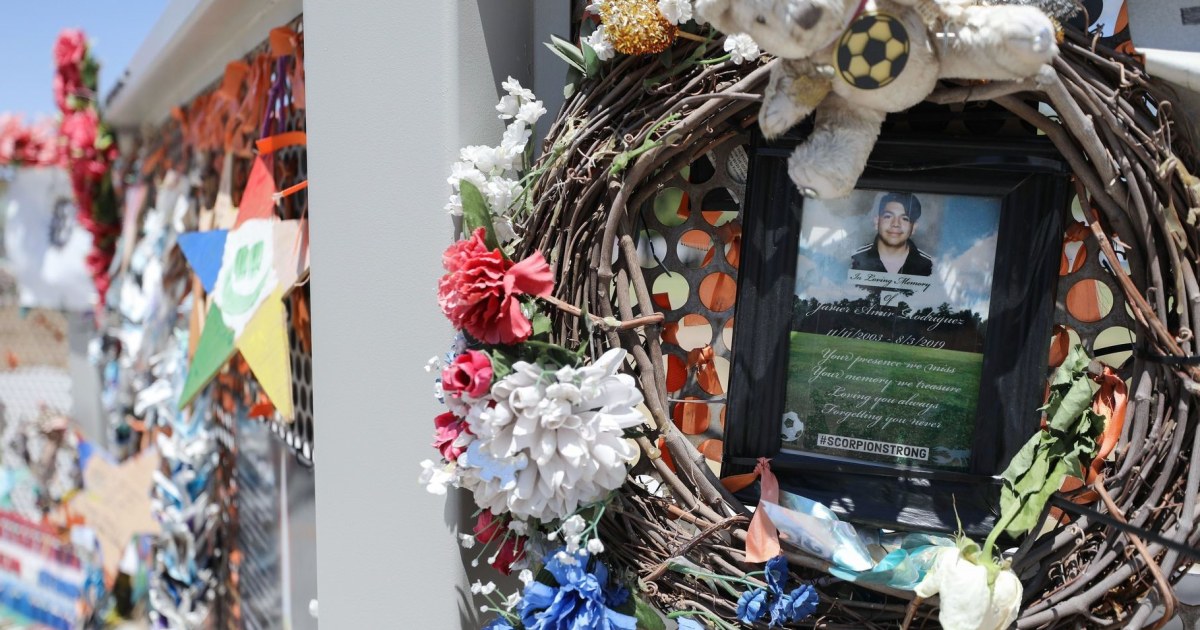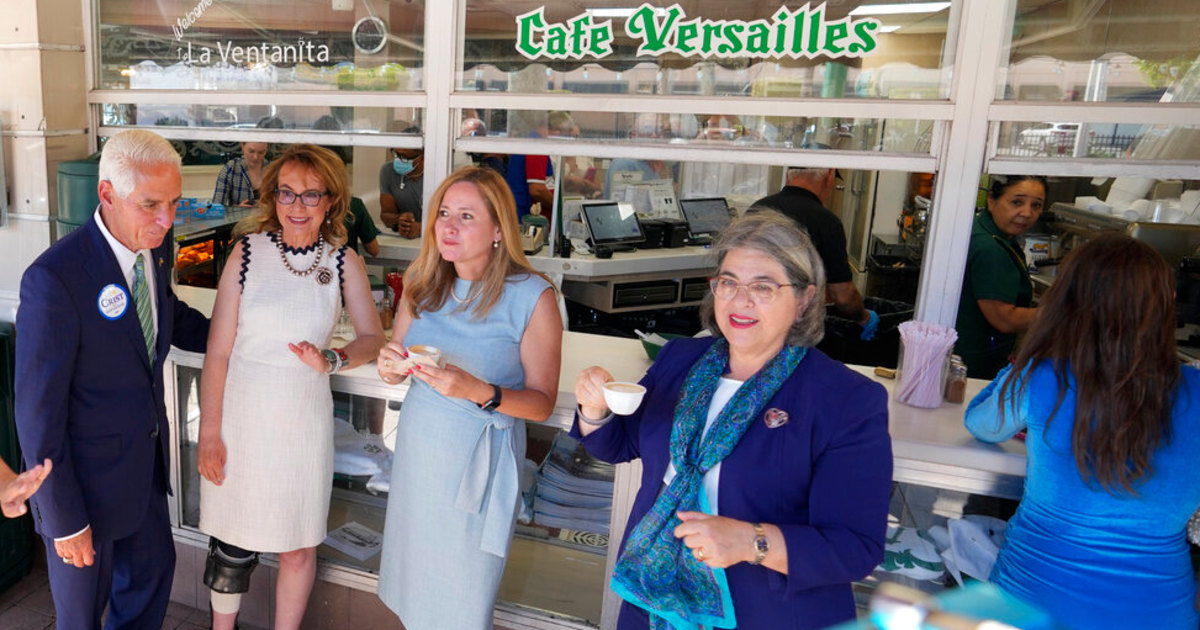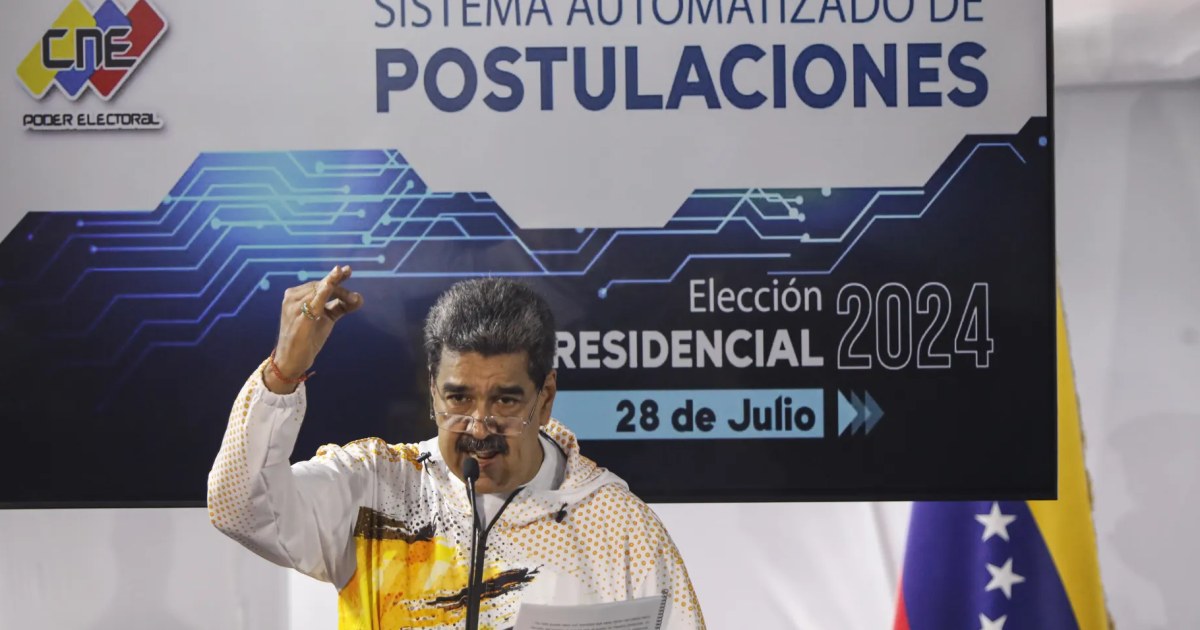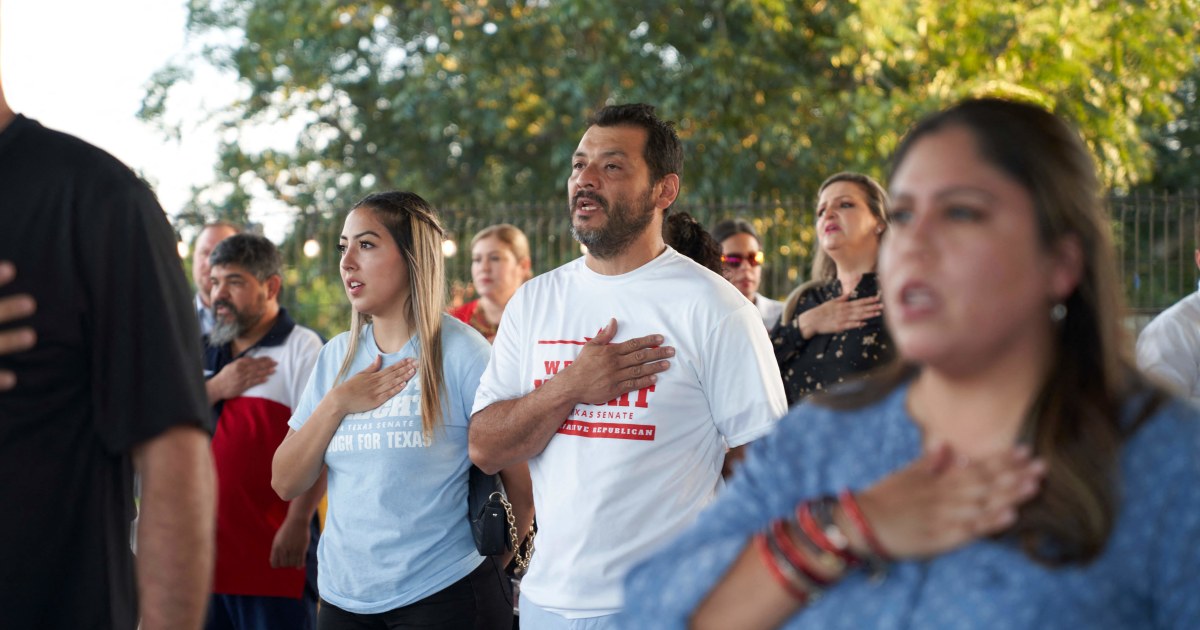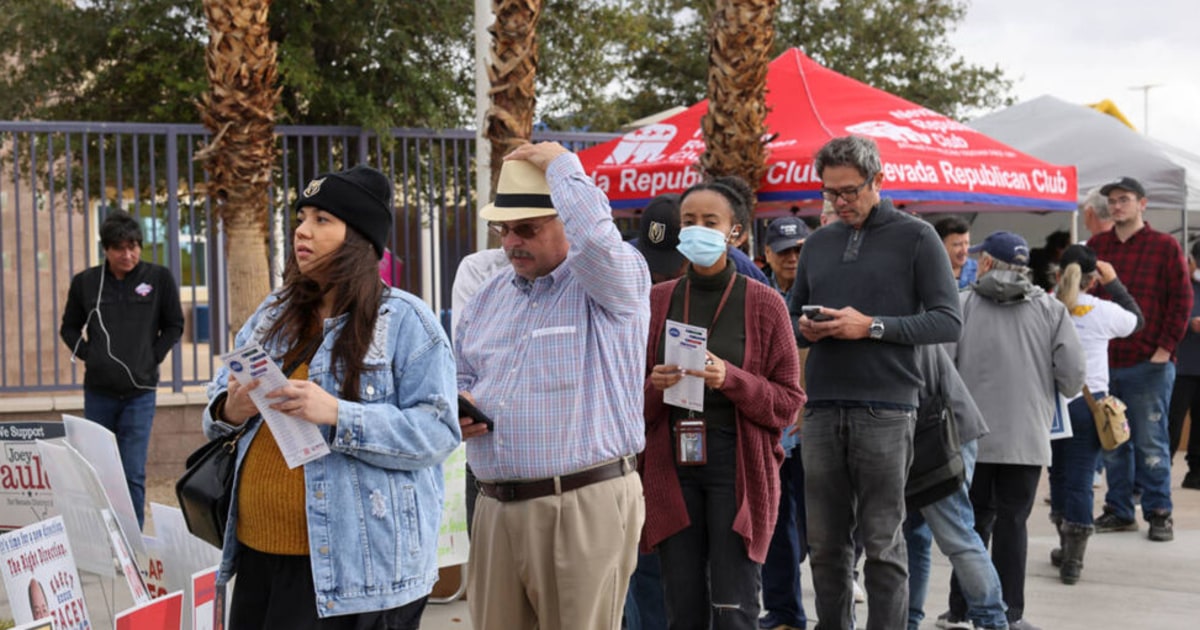By Marina E. Franco and Russell Contreras
Welcome to Axios Latino
, a newsletter designed to tell you every week the stories that have a special impact on Latino communities in the United States and in Latin America.
If you are interested in subscribing and receiving it in your mail in English, you can do so by clicking here.
Every week we will publish the
newsletter
on Noticias Telemundo also in Spanish for those who prefer it in this language.
Before you begin: In his first speech to the plenary session of both houses, President Joe Biden urged Congress to pass measures that benefit Dreamers, farm workers and Tepesians.
1 topic to highlight: States with a high Latino population lose political power
States like California and Arizona, despite their growing Hispanic populations, will have fewer seats in the House of Representatives than demographers and analysts expected.
The result from the first 2020 Census data has raised questions about whether there were incorrect counts of Latino communities.
Why it matters:
Latinos in the US have accounted for half of the population growth over the past decade, but that is not necessarily reflected in the new Census figures.
The division of seats in Congress determines a district or state's access to budget funds and tax issues for up to a decade.
The background:
The Census Bureau had a more extended schedule to collect this information, taking into account the logistical limitations due to the coronavirus pandemic.
But the Trump administration ordered the count to end early and the Supreme Court allowed it.
Census workers reported that they were sometimes instructed to enter false information from certain sites in order to finish faster and meet the deadline, suggesting the possibility of undercounting.
Experts also warned during 2020
that the count may not be true to life because many minority communities were not sufficiently encouraged to fill out Census forms with their data.
Also because many immigrants said they were afraid to participate because the Trump administration tried to ask a question about the legal status of the participants so as not to count undocumented immigrants.
More Census results, including demographic information, will be released in September.
Some Elected Officials Question Hispanics Count in the 2020 Census
April 29, 202100: 26
2. Punishment and reward, at the same time, for Central America
The vice president, Kamala Harris, in a virtual meeting with Alejandro Giammattei, president of Guatemala;
at the White House, April 26, 2021. AP
The State Department announced a plan to support the "urgent needs" of migrants, providing 310 million dollars in humanitarian assistance to Central American countries, as part of a project to address the problems caused by emigration.
Why it matters:
The White House will need to evaluate how to distribute that money since at the same time that it plans to give a disbursement to certain Central American governments, it is sanctioning them for acts of corruption.
There are calls to sanction the president of Honduras for suspicions of corruption and drug trafficking, and with sanctions recently imposed by the State Department on Honduran politicians.
Guatemala and Honduras used to have independent anti-corruption commissions, partially funded by the US, but they were dismantled by the governments in office in 2019 and 2020, respectively.
Migrant children face hunger, crime and even death on their way to the United States.
April 23, 202101: 57
Pushing the issue forward:
Congressmen told Axios that they are going to encourage a measure to impose sanctions on Juan Orlando Hernández, the Honduran president, and to restrict dealings with him.
Hernández has been mentioned in US investigations for alleged links to drug traffickers, and the president's brother, former Honduran congressman Tony Hernández, has just been sentenced to life in prison for cocaine trafficking.
What's behind it:
Mismanagement and diversion of public resources have long created serious problems in Central American countries, one of the reasons why so many people seek to emigrate.
3. Disappeared who traveled in search of a better life
The two faces of a coyote: for many migrants they are the path to a dream, for others their path to death
April 1, 202103: 32
At least 2,000 people who were migrating to the U.S. through Mexico have been reported missing in recent months, possibly victims of kidnapping or worse, according to a coalition of Mexican state human rights commissions.
The general situation
: Migrants are increasingly victims of crime in Mexico as the cartels kidnap them to extort money from their families or forcibly recruit them to work in their laboratories or drug plantations in the face of death threats.
In the last decade alone there have been three mass massacres of migrants in Mexico, with violent fates that include burned bodies, beheadings and mass graves.
A coyote told Noticias Telemundo that massacres can happen when people hired to cross migrants do not pay a “right of way” to the cartels.
In figures:
Almost 88,000 people in Mexico, whether citizens or foreigners, are reported missing in the country.
The figure is equivalent to the entire population of Santa Fe, New Mexico.
4.
The number of Latinos who own a home is growing
Up to 750,000 Hispanics in the U.S. became homeowners during 2020, and they are the only demographic to increase homeownership rates during each of the past five years, according to data from the National Association of Hispanic Real Estate Professionals (NAHREP).
Home Buying by Latinos Reaches Record Numbers in 2020 Despite Pandemic
April 26, 202101: 48
Why it matters:
In the past decade, more than half of the nation's homeownership growth has been driven by Latinos.
This, despite the fact that the community in general faces barriers when trying to process loans.
Last year's increase in homeowners was driven by people who had accumulated years of savings and a slump in credit interest rates, even though Latinos overall suffered heavy economic losses from the pandemic.
Half of the Latinos surveyed for the NAHREP study said the COVID-19 situation caused them to rush into their existing homeownership plans.
On the other hand, up to half of Hispanics who are renters fear being evicted from their home.
5. Two years after a failed uprising, what's next for Venezuela?
On April 30, 219, Venezuela woke up with the surprising news that Leopoldo López, the country's best-known imprisoned opponent, was free and met with Juan Guaidó, leader of the National Assembly and who months before had proclaimed himself president in charge, outside of a military base.
There they problamed that Nicolás Maduro's regime had ended and exhorted the armed forces to rise up.
But two years later, López is in exile, Guaidó has an uncertain future and Maduro is still in the Miraflores Palace.
Axios spoke with the main characters of the failed uprising
- from Guaidó himself to then-US national security adviser John Bolton - about how that day unfolded and what it holds for Venezuela two years after it happened.
Read it this Thursday in the Axios World newsletter [in English]
Juan Guaidó, Venezuelan opposition leader, on February 21, 2020.AP / AP
6. Nicaragua turns to look into space in the face of claims of human rights abuses
The Nicaraguan government is creating the "National Secretariat for Outer Space, Moon and Other Celestial Bodies" after the president, Daniel Ortega, raised it as a priority issue.
The background:
The plan to create this new ministry comes when the Central American country turns three years since a series of massive protests against Ortega, which were repressed with such violence that thousands have had to leave the country for fear of political persecution.
This new secretariat would be an attempt to attract funds to the country with the pretense of scientific development and satellites, according to Nicaraguan analysts, since there are currently economic sanctions against the Ortega regime by the United States for the repression of the protests.
The general situation:
The Nicaraguan government faces a deadline from the Organization of American States to carry out electoral reforms (as a law would prohibit opposition candidates in the November election), and Ortega has been urged to release more than 100 people classified as political prisoners.
7. The history of Puerto Rican activists receives an outstanding award
University of North Carolina Press
A new book about the Young Lords organization, of Puerto Rican activists who caused a sensation in Chicago and New York in the 1960s, has just won the Frederick Turner Jackson Award from the Organization of American Historians.
The Background:
The Young Lords: A Radical History
examines how activists organized majority Puerto Rican neighborhoods to protest, to establish health clinics and free food programs in an effort to achieve greater political power that recognized the contributions of the Puerto Rican population. in both cities.
Professor Johanna Fernández, who teaches history at Baruch College, has just been awarded for the work.
8. Delights made with solar energy
Grandpa invents a solar stove and goes viral on social networks
April 26, 202 106: 04
Maximino Antonio Piedad has become an inventor and viral sensation at the age of 71, thanks to a stove that uses the sun's rays to heat food.
Piedad, who grew up speaking only her native Nahuatl language and learned Spanish until her teens, makes the stoves by hand.
He says the idea came to him when he saw how many people in his neighborhood outside of Mexico City did not have access to gas burners.
Piedad's project also promotes recycling by using old television antennas and renewable energy.
Thanks for reading,
until next week.
Do you want to read the previous editions?
- Plant trees as a migratory proposal
- An incentive from Mexico to migrate
- Children in the migratory maelstrom
- The cry for justice in Mexico
- What is behind the emergency at the border




